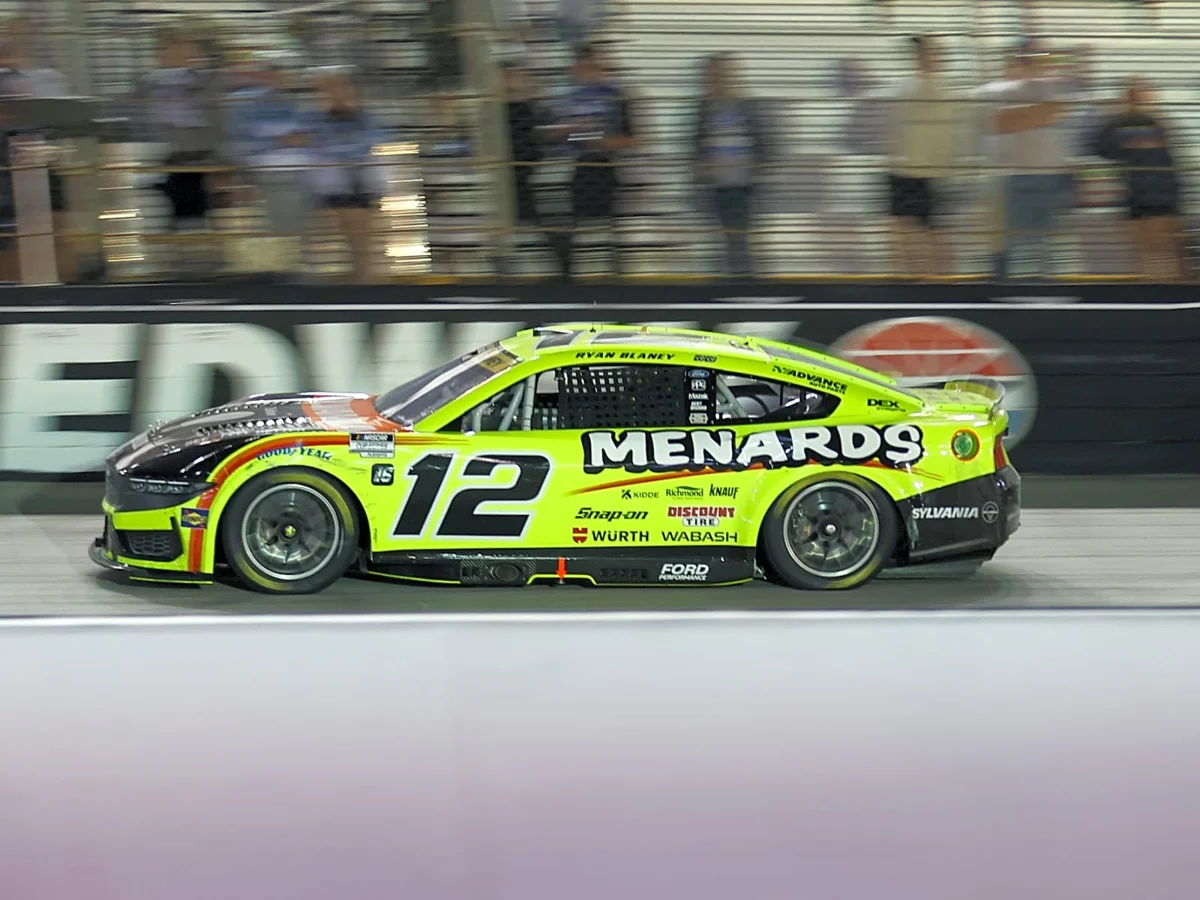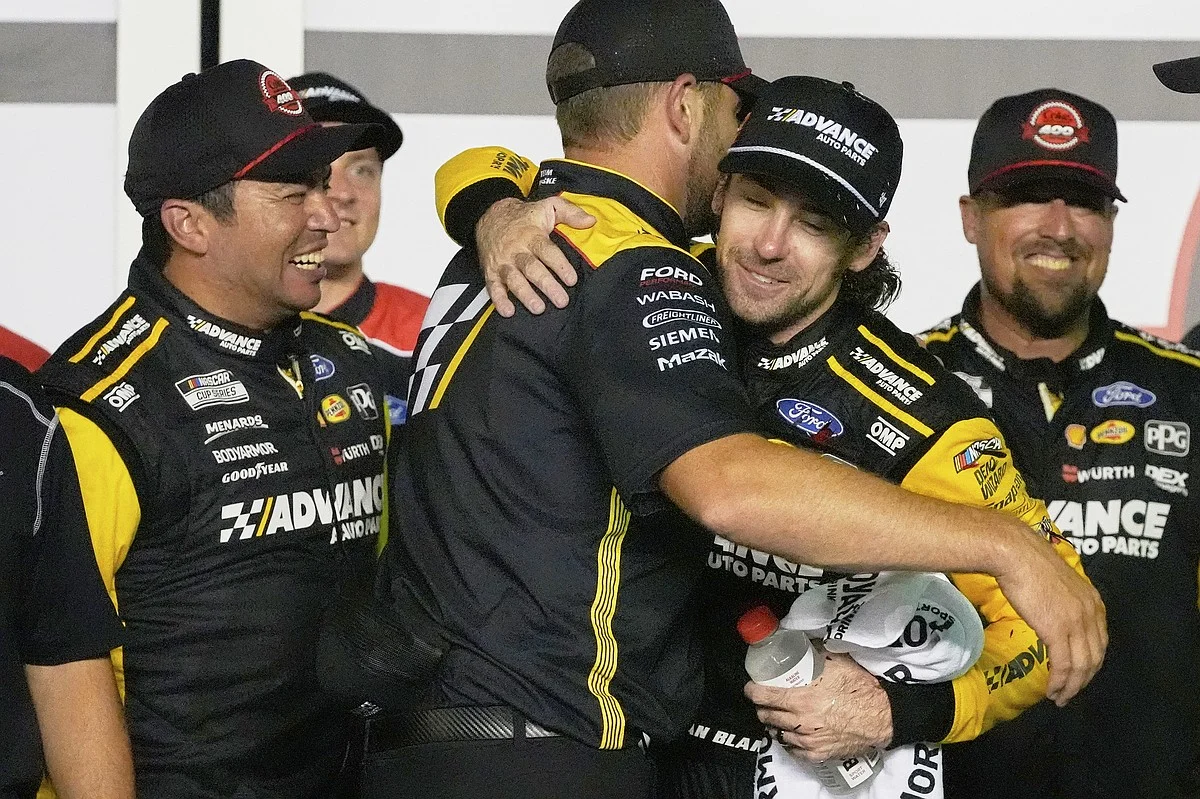Ryan Blaney offered thoughtful guidance to Joe Gibbs after a heated moment between Denny Hamlin and Ty Gibbs during Sunday’s NASCAR Cup playoff race at New Hampshire, suggesting that quick intervention can help prevent ongoing tensions within Joe Gibbs Racing. The discussion around how teams manage internal conflicts brings the focus to Ryan Blaney advice Joe Gibbs on maintaining unity and performance under pressure.
Blaney Urges Early Conversations After Internal Disputes
During a post-race press conference following his victory, Blaney addressed the recent clash involving Denny Hamlin and Ty Gibbs, the latter being Joe Gibbs’s grandson. Blaney emphasized the value of immediate dialogue following disagreements to keep team dynamics healthy.
“It’s more beneficial to speak on it sooner than later because if you don’t speak on it sooner than later, things fester,”
Blaney explained. He elaborated on how a lack of communication can create suspicion within a team, stating,
“People have their own minds, like did he do it on purpose, whatever, and things can kind of build.”
Blaney noted the significance of the planned Monday team meeting at the Joe Gibbs Racing headquarters, where all members gather for a debrief after each race. According to Blaney, these sessions are ideal opportunities for open conversations to resolve any issues and restore harmony as quickly as possible.
“I think the sooner you can get that stuff out in the open, just have a conversation with somebody, I think that’s always a better way to go about it,”
Blaney remarked. He acknowledged that different team members may have unique approaches but offered that
“everyone’s different, but that’s just my mindset on it.”
Penske’s Approach to Team Unity and Expectations
Comparing his own Team Penske environment to what he envisions at Joe Gibbs Racing, Blaney highlighted the rarity of significant conflicts among Penske’s drivers—himself, Joey Logano, and Austin Cindric. Josh Berry, associated with Wood Brothers Racing, also contributed to the group’s playoff presence this season, although Berry was eliminated in the first playoff round at Bristol.

With Logano, Cindric, and Blaney still competing for the championship, the team’s cooperative mentality stands out. Berry, despite not having a path to the championship after his elimination, could still race for wins, yet internal interference seems unlikely. Blaney attributed much of Team Penske’s consistent unity to the leadership of Roger Penske, who is proactive in clarifying expectations and addressing any emerging animosity between drivers.
“When Joey and I are racing for the lead, we know what this is for, so we fully expect us to race hard, but race clean,”
Blaney stated. He cited recent examples from Sunday’s race, including,
“Like I was never going to lay a bumper to Joey trying to get by him in stage 3 or stage 1, when he was leading, to get by him.”
Blaney stressed that maintaining respect on the track extends beyond competition. He remarked,
“But I fully expect to race hard. That’s what Roger expects of us, and that’s what Eddie and Len expect with the Wood Brothers. We’re going to go out there and race hard, but we’re going to do it in a fair way.”
For Blaney and his fellow drivers, clean racing is not just a principle but an organizational expectation that fosters ongoing success.
Implications for Joe Gibbs Racing and the Rest of the Cup Playoffs
Blaney’s win at New Hampshire brought not only a checkered flag but also renewed attention to how internal harmony or discord can influence a race team’s performance. While the tension between Hamlin and Ty Gibbs presents a challenge for Joe Gibbs Racing, Blaney’s comparison highlights the benefits of transparent leadership and quick conflict resolution, qualities that Team Penske and the Wood Brothers seem to prioritize. As the NASCAR Cup playoffs continue, the strategies employed by team owners like Joe Gibbs and Roger Penske may play a significant role in determining which organizations thrive under pressure and which might struggle with internal challenges.
